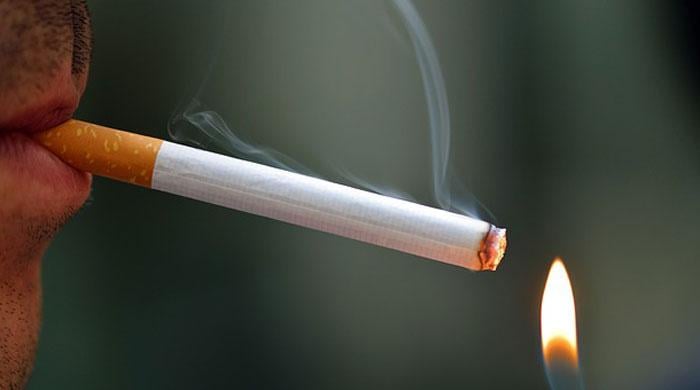Pakistani doctors stand tall in their fight against smoking this World No Tobacco Day
Over a 100,000 people die every year as a result of cigarette smoking
May 31, 2016

Renowned physicians from the country have joined hands in their fight against the growing tobacco epidemic.
The physicians have expressed their concern regarding the issue that continues to plague the country in a letter addressed to the Prime Minister. They are of the opinion that if not controlled, the growing use of tobacco might result in a serious health and economic disaster.
Over a 100,000 people die every year as a result of cigarette smoking. This number is much greater than the deaths caused by suicide bombings, traffic accidents and crime related killings, the letter states.
Tobacco use increases the risk of heart attacks, hypertension, stroke and a multitude of lung diseases. However, health is not the only concern. Increased tobacco use causes a threat to the economy.
According to Professor Javaid Khan, Chair of the National Alliance for Tobacco Control, Pakistan had spend over 260 billion rupees on 64 billion cigarettes in the year 2015 alone and an equal amount of money is spent on smokeless tobacco which includes paan, naswar and gutka.
A large sum of the country’s foreign exchange is then spent on medicines required to treat diseases caused by tobacco, and it is an on going cycle which is why tobacco control would also help the economy, he said.
The letter has been signed by physicians from renowned hospitals such as the Agha Khan University Hospital (AKUH), Dow University of Health Sciences (DUHS), Abbasi Shaheed Hospital, Liaquat National Hospital, Jinnah Postgraduate Medical Center, Shaukat Khanum Memorial Cancer Hospital, Sheikh Zayed Hospital Lahore and Rahim Yar Khan, Gulab Devi Chest Hospital Lahore, King Edward Medical College, Lady Reading Hospital Peshawar and Fauji Foundation Hospital Rawalpindi.
They have demanded for the enforcement of the "Prohibition of Smoking and Protection of non-smoker's Health Ordinance of 2002" which would help control the growing use of tobacco in the country.
The letter demands that all public places and vehicles be made smoke free, that there should be increased taxation on cigarettes, that no vendors should be allowed to sell in the vicinity of schools and colleges and that sale of tobacco products to minors should be strictly prohibited.
They also expressed their concerns over the portrayal of smoking on TV which represents it as a cool and hip thing to do which in turn encourages the youth to take up on the habit.











